Governments must stop arming Israel as atrocities escalate across Gaza
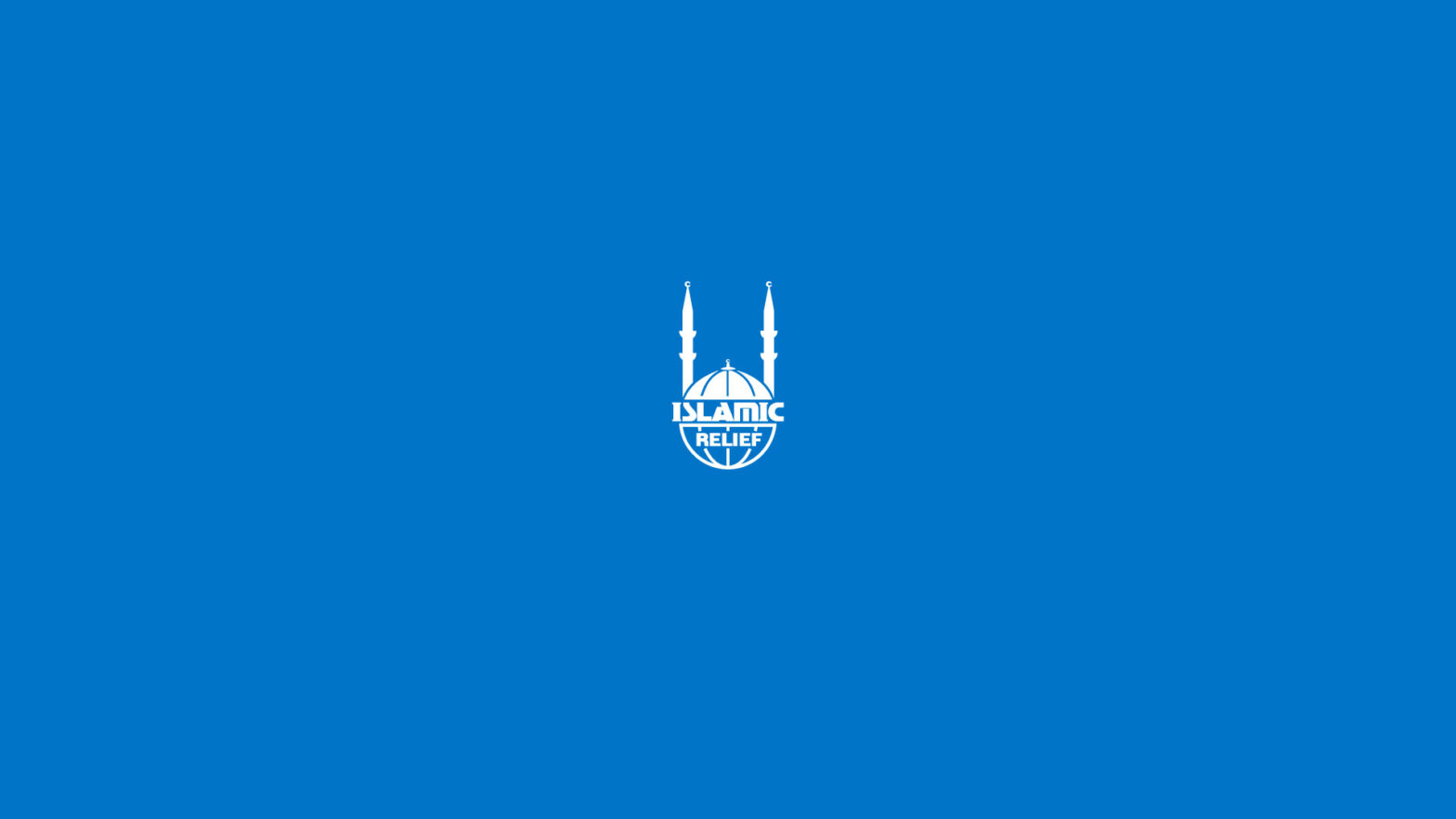

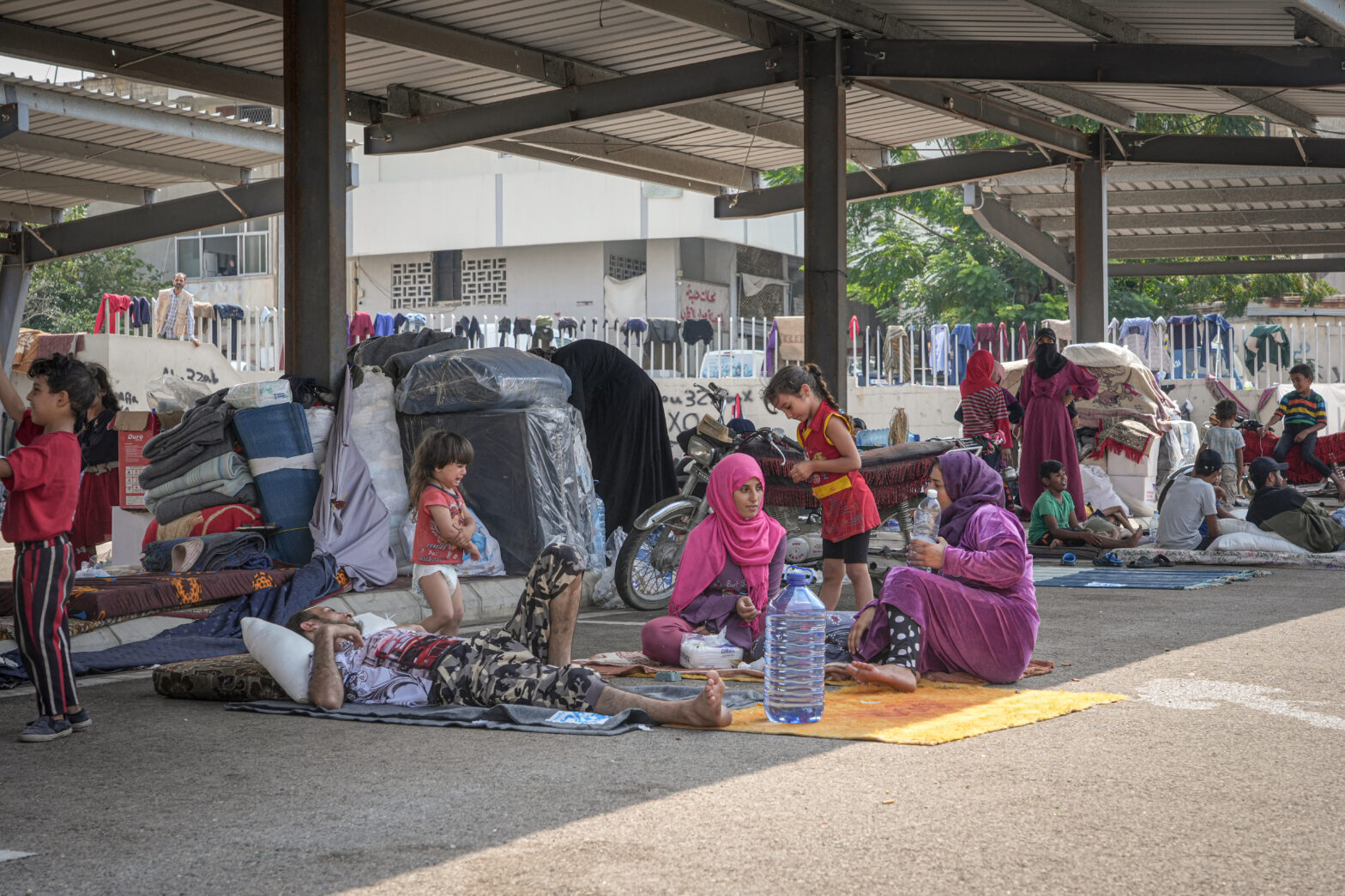
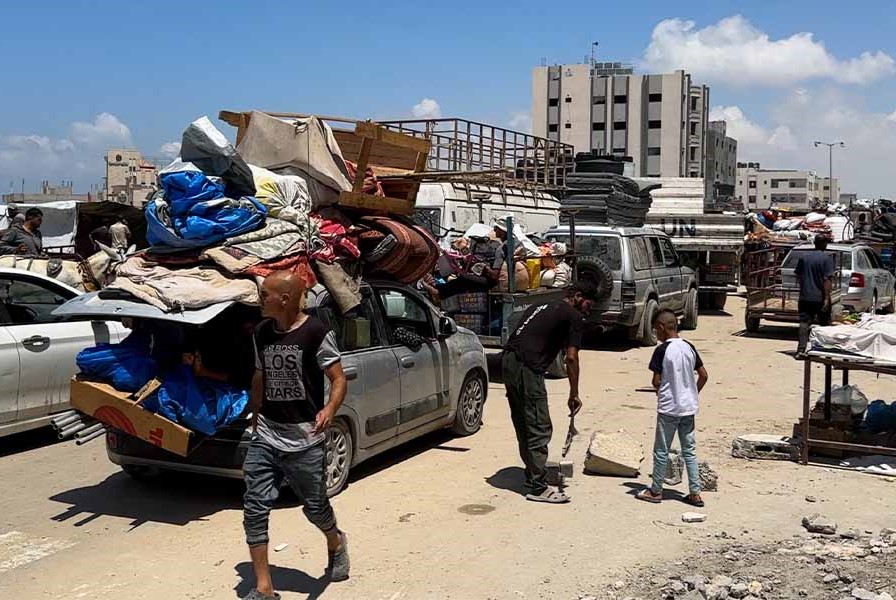
“I have changed during these months. I used to think the future would be bright but now I do not think so: our future is very dark.”
In May 2024, we published these words from an 8-year-old girl in Gaza. Yomna described how her life had become “like a nightmare” since the previous October.
Now, life has only gotten more challenging for Yomna and the more than 2 million others living under bombardment in Gaza. A future which seemed bleak 5 months ago, has gotten even darker as Palestinian families reflect on a year of horror, with still no end in sight.
It’s difficult to describe the loss, destruction and devastation the Israeli bombardment is having on Gaza. The numbers are overwhelming.
More than 41,000 people have been killed – including over 11,300 women and 16,750 children. At least 96,000 more people have been injured.
Only 17 of Gaza’s 36 hospitals are still functional – and all only partially. Shortages of fuel, medicine and essential supplies are hampering efforts to treat the wounded and care for the chronically ill.
Around 90% of Gaza’s population is now displaced, with many having to flee again and again in search of safety, but there is nowhere safe for them to go. Diseases are spreading in overcrowded shelters and famine conditions are spreading
Many have no home to return to as bombing has left more than 60% of Gaza’s residential buildings damaged or destroyed.
Supporting the people of Gaza
In a new report, Islamic Relief outlines how our dedicated staff and partners in Gaza have been supporting people in desperate need over the last year, even as they face great hardship themselves.
With the exception of our Orphan Sponsorship Programme, which has expanded considerably, Islamic Relief’s regular programmes have been suspended for the safety of our staff, partners and the communities we serve. Instead, we have focused on responding to the emergency.
Over the last year, we have helped feed people displaced people in shelters with hot meals, food packs, vegetables and vouchers. We have also distributed desperately needed clean water and nutritional supplements to people in shelters. To help combat the spread of disease, we’ve set up portable toilets and provided hygiene kits to displaced people.
We have organised games and performances for children to help support their mental health and provide a momentary distraction from the hardship they’re enduring.
Prior to October, Islamic Relief supported 8,750 orphans in Gaza through our Orphan Sponsorship Programme. Now, more than 16,400 children are receiving a monthly stipend, as well as food parcels and gifts at Ramadan and Eid. While the programme has expanded, we are heartbroken that 118 of the children and young people we have cared for have been killed since the crisis began.
Ceasefire now
The generous support of our donors is putting aid into the hands of families in desperate need in Gaza. But so much more is needed. Humanitarian organisations can ease the suffering of Palestinian families, but we cannot bring it to an end –and, devastatingly, world leaders have repeatedly failed to act as international law is violated every single day.
The dire conditions inside Gaza are a stain on the conscience of the world, which has watched on as children are bombed, families are displaced repeatedly, women give birth without medical care, and hope is stripped from ordinary people.
Now, after almost one year of unfathomable loss, and as Israel’s bombing spreads across the region, Islamic Relief is clearer than ever that this nightmare must end. We continue to call for an immediate and permanent ceasefire in the region. International law must be upheld, and anyone found to have committed violations must be held to account. We are calling for Israel to end its attacks and the forced displacement of civilians, and to end the siege so that sufficient humanitarian aid can enter Gaza to alleviate the suffering of its people.
Read more in our new report A year of massacre and misery: Israel’s nightmare campaign against Palestinian families in Gaza.
Help Islamic Relief continue supporting vulnerable people in Gaza. Donate to our Palestine Appeal now.
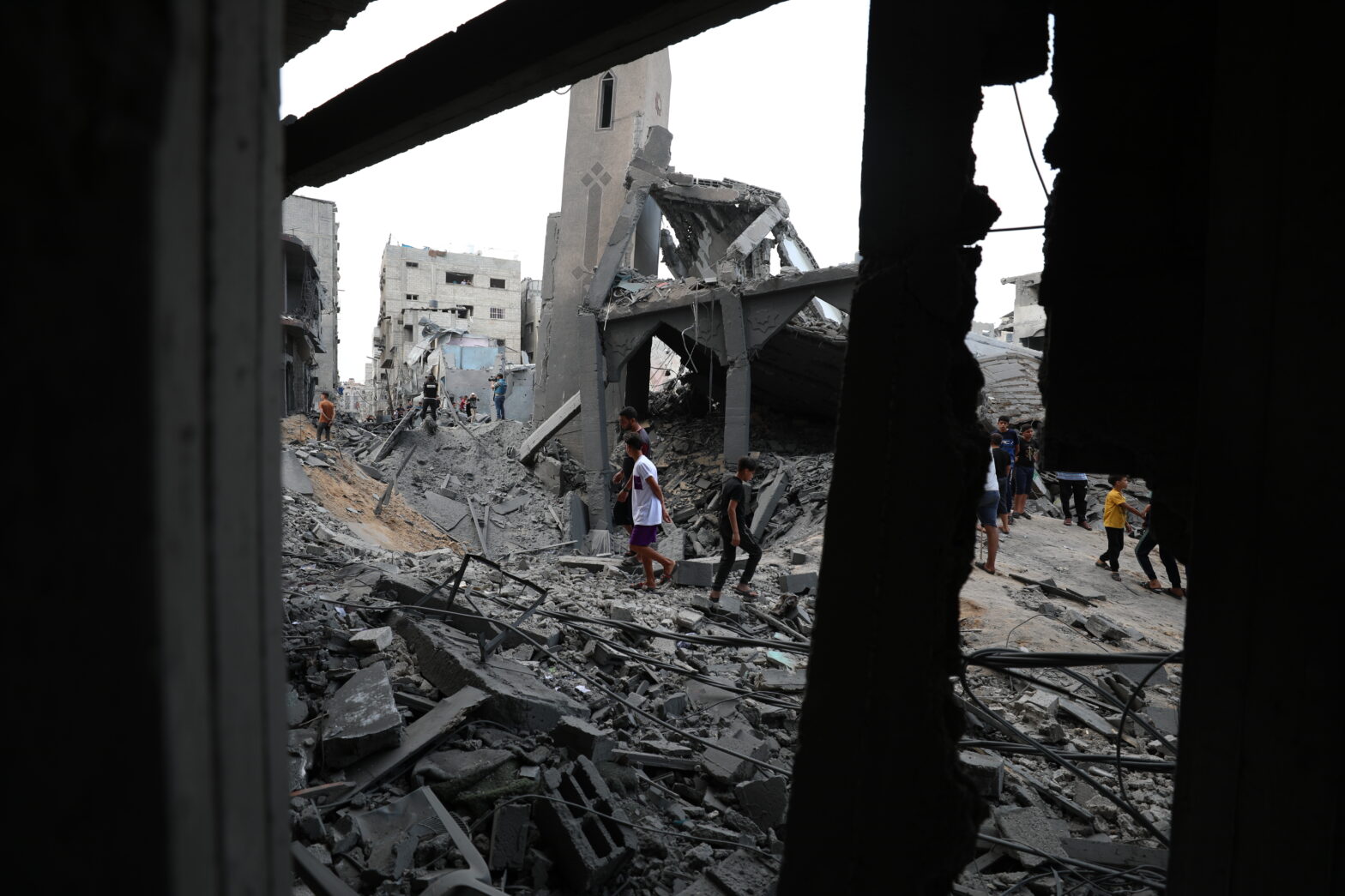
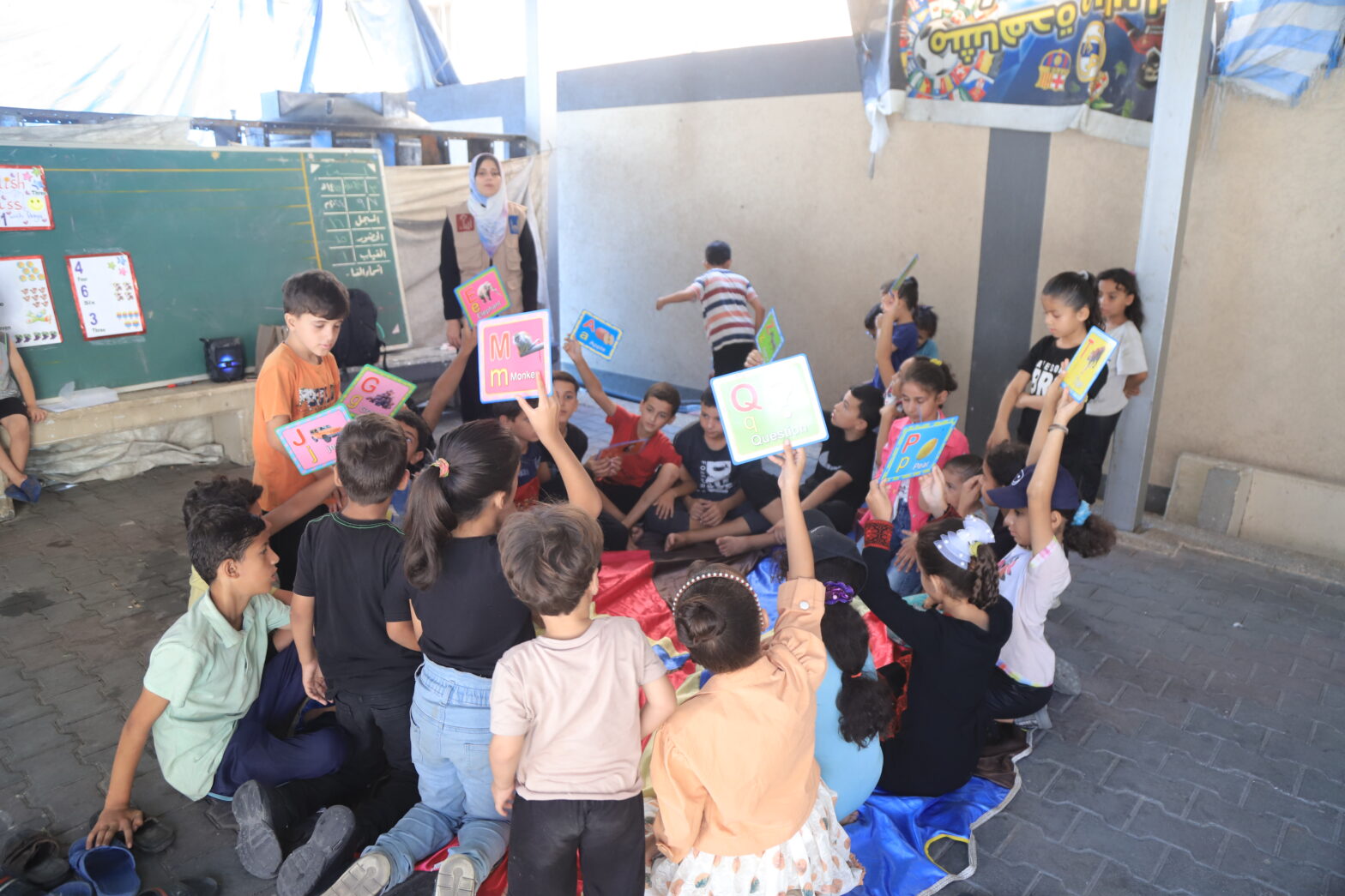

The latest Israeli atrocities across Gaza must be the final red line for governments to immediately halt all arms sales to Israel, Islamic Relief Worldwide says. In just the past few hours, Israeli attacks have burned children alive in their tents, bombed a polio vaccination site and killed starving mothers as they queue for food. At the same time, families are being starved out of their homes as Israel has cut off all food and other aid to northern Gaza.
Arms sales are aiding and abetting these atrocities and likely war crimes, and governments must not be complicit in fuelling this horror.
With global attention shifting away from Gaza, Israel has stepped up attacks on Palestinians across the territory. In central Gaza, this morning children have been burned alive after the Israeli military bombed al-Aqsa hospital in Deir al Balah. Aid workers report screams of agony filling the air and doctors are treating dozens of women and children with severe third-degree burns, but the hospital has no dedicated burn unit. More than 1 million people are now trapped in inhumane and dangerous conditions in the tiny so-called ‘humanitarian zone’ in central Gaza, between Deir al Balah and al Mawasi, and now Israel is forcing even more people there as it aims to empty northern Gaza.
In Jabalia in northern Gaza, Israel is stepping up its stated plans to annex territory and force Palestinians out through relentless bombing and starvation. Dozens of civilians have been killed there in the past few days and Israel has tightened its siege, preventing any new food supplies from entering northern Gaza for the past 2 weeks, since the start of October. This morning bombs struck a food distribution in Jabalia, killing starving mothers, fathers and children as they queued for scraps of food.
Yet while Israel orders people in the north to move south, many say they have been shot by Israeli snipers as they try to do so. Many families are now trapped between bombs and snipers, with nowhere to escape. Civilians who do not leave northern Gaza do not lose their right to protection and assistance under international law.
The escalating bombing and forcible transfer of civilians is making it even harder to vaccinate young children against polio, with potentially generational consequences. The second round of the polio vaccination campaign is set to begin today, aiming to give a vital second vaccine dose to almost 600,000 children under 10 years old – but plans are now in jeopardy and at least one school intended to be used as a site for vaccinations has been bombed in the past 24 hours, killing many displaced civilians who were sheltering there.
Gaza is being wiped out before the eyes of the world. Despite Israel’s ongoing ban on international media access into Gaza, and targeted attacks on journalists, governments cannot say they do not know about these atrocities. They must take bolder action and ensure there are consequences for violations of international law. Islamic Relief Worldwide is calling on governments to suspend all arms transfers; unequivocally demand that Israel’s annexation and forcible transfer of Palestinians in northern Gaza must stop; and pressure Israel to comply with the International Court of Justice (ICJ) order to prevent genocide.